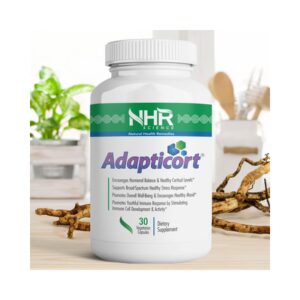Welcome to a comprehensive guide on boosting your immune system naturally. In today’s world, maintaining a robust immune system is crucial for overall health and well-being. By incorporating simple lifestyle changes and natural remedies, you can enhance your body’s ability to fight off illnesses and infections effectively. In this article, we’ll explore 15 proven methods to strengthen your immune system and promote optimal health.
A Comprehensive Guide for Strengthening Immune System Naturally.
With constant exposure to pathogens and environmental toxins, having an effective immune system has never been more crucial. Our immune system acts as our body’s defense mechanism against invading bacteria, viruses, and parasites; having one ensures faster recovery when we do become sick.
Though medications are available to boost immunity, many prefer natural methods that support their body’s natural defense mechanisms against infections and diseases. Some ways natural methods of strengthening immunity include adopting a healthier lifestyle, eating immune-enhancing foods and supplements, including herbal remedies into daily routines, practicing stress management techniques and engaging in regular physical exercise.
Understanding how the immune system functions is key for strengthening immunity. Maintaining a healthy lifestyle with balanced eating and regular physical activity are necessary components of good immune health; superfoods like berries, leafy greens and garlic may help bolster defenses further.
Vitamins and minerals such as vitamin C and zinc play an integral part in immune function. Herbal remedies, stress management techniques, and natural supplements all offer support to maintain a healthy immune system.
Understanding Immune System Functioning and Importance
The immune system is a network of cells, tissues, organs and molecules that work in concert to protect our bodies against foreign substances. Its primary objective is recognizing pathogens or abnormal cells as threats and eliminating them while safeguarding healthy tissues in the process.
An effective immune system is crucial to overall wellbeing as it serves as the first line of defense against infections by neutralizing harmful microorganisms before they cause harm, and as part of wound healing by supporting tissue repair after injuries or surgeries.
An Active Lifestyle and Immunity Improvement: How Important it Is
1) Eating a balanced diet: Eating a diet rich in fruits, vegetables, whole grains and lean proteins will support overall wellness.
Consuming fruits, vegetables, protein-rich foods, and healthy fats provide essential vitamins and nutrients necessary for optimal immune functioning, including A,C,E,D,B6 B12 folate zinc selenium iron.
2) Staying Hydrated: Drinking an adequate amount of water throughout the day helps support proper bodily functions such as circulation, digestion and elimination. Furthermore, water supports lymphatic flow which assists with flushing toxins out of the body.
3) Avoid Smoking and Excess Alcohol Consumption: Smoking weakens immunity, making you more prone to infections; while alcohol, when consumed excessively, may impair immune response and increase infection risks.
4) Controlling stress: Chronic stress has the ability to suppress immune function, so engaging in stress-reducing activities like meditation, yoga and deep breathing exercises can help maintain a healthier immune response.
Superfoods for Immune Health: What and Why to Consume
Superfood Nutrients Benefits Kale is packed with vitamin C, K and iron which all work to support immune health as well as reduce inflammation. Furthermore it supports bone health.
Blueberries boast antioxidatives, Vitamin C and fiber to protect against oxidative stress as well as reduce inflammation for improved digestion and immune health.
Garlic (Allicin, Vitamin C and Selenium) can boost immune system health while simultaneously reducing inflammation, supporting heart health and relieving nausea. Potassium reduces inflammation while supporting digestion.
Spinach contains Vitamin C, K, Iron and Magnesium which boost the immune system, support bone health and reduce inflammation.
Certain foods are well known to support immune health due to their abundant supply of vitamins, minerals, and antioxidants. Such superfoods include citrus fruits; rich in Vitamin C which promotes white blood cell production which help fight infection;
2) Berries: Packed with antioxidants that fight oxidative stress and inflammation.
3), Garlic: Rich in compounds known to increase immune cell activity and reduce severity of colds and flu. 4) Ginger: Offering anti-inflammatory benefits which support healthy immunity responses.
Turmeric contains curcumin, an excellent antioxidant with anti-inflammatory effects.
Vitamin and Mineral Contributions to Immune System Function
Multiple vitamins and minerals play a crucial role in supporting optimal immunity.These include: mes 1)Vitamin A: This vitamin plays an essential role in maintaining skin integrity as well as improving white blood cell activity in our respiratory tract and maintaining overall respiratory tract health. It can help keep tissues intact for respiratory protection as well.
2)Vitamin C : Stimulates antibody production, improves white blood cell function and supports collagen synthesis essential for wound healing.
Vitamin D plays an integral role in both adaptive and innate immunity, activating certain types of white blood cells that specialize in fighting pathogens.
vitamine E acts as an antioxidizing agent protecting cells against damage caused by free radicals; further enhancing antibody production.
Herbal Remedies for Immune Support: A Comprehensive Guide
Herbs have long been used to support overall health, including increasing immunity. Some popular immune support herbs include: 1)Echinacea: Renowned for stimulating immunity while helping reduce duration and severity of colds and flu, it is one of the go-to herbs.
2)Astragalus: Used traditionally Chinese medicine to boost immune function and protect against respiratory infections.
3]Ginseng: Helps modulate immune response by increasing production of antibodies and activating white blood cells.
Turmeric contains curcumin, an anti-inflammatory compound with powerful healing capabilities that supports an efficient immune system.
Exercise for immune health. Here are the advantages of regular physical activity on immunity:
Regular physical activity offers numerous health advantages, including improving immunity. Exercise helps increase blood circulation which allows immune cells to move more freely throughout the body and also decreases stress hormones which suppress response from immune system cells. Furthermore, exercise promotes better sleep which is key for optimal immune health.
Different forms of exercise have different effects on immunity. Cardiovascular exercises such as running or swimming, and strength-training activities like weightlifting or yoga should both be combined for maximum results. The American Heart Association suggests 150 minutes a week of cardiovascular exercises; for strength training activities that target all major muscle groups at least twice weekly.
Sleep Is Power: How Restful Slumber Can Strengthen Immune Systems
Sleep plays an integral part in maintaining a strong immune system. While sleeping, our bodies produce cytokines-a type of protein which fights infection and inflammation-and if we don’t get enough of it due to poor quality restful rest, this production decreases, making it harder for our bodies to defend against infections and inflammation. Sleep deprivation also raises levels of stress hormones which further lower our immunity.
To optimize sleep quality, it is essential to set a regular sleep schedule, create an enjoyable bedtime ritual, and cultivate an environment conducive to restful restful slumber – including keeping your bedroom cool dark and quiet; refraining from electronic devices before bed and limiting caffeine consumption are other helpful strategies.
Stress Management Techniques for Immune Support
Chronic stress can have a detrimental impact on one’s immune system by suppressing its functionality. Stress stimulates cortisol release which interferes with immune cell activity, increasing susceptibility to infections.
As part of our strategy to manage stress and promote immune health, incorporating stress management techniques into daily routine is critical. Some effective techniques include meditation, yoga, deep breathing exercises, journaling and taking up hobbies that bring us joy and relaxation.
Natural Immune Boosters: Supplements and Essential Oils
Supplements and essential oils can provide additional support for the immune system in addition to diet and lifestyle factors, including: 1)Vitamin C : This vitamin acts as an antioxidant which enhances white blood cell functioning.
2) Zinc: Promotes antibody production and helps regulate immune cell activity. Elderberry contains antioxidants that provide protection against oxidative stress and inflammation. Probiotics bolster an optimal gut microbiome which plays an essential part in supporting optimal immunity.
Essential oils derived from plants possess antimicrobial, anti-inflammatory and immunomodulatory properties. Some popular essential oils for immune health are: 1)Lemon: Widely recognized for its antibacterial properties as well as supporting lymphatic flow that aids detoxification processes.
2)Tea Tree: Tea tree has antimicrobial properties which help fight infections while stimulating white blood cell production. 3), Lavender: Lavender is known for its relaxing effects which reduce stress levels while simultaneously improving immunity when used regularly.
Immune-Boosting Practices from Around the World
Cultures worldwide practice traditional practices designed to boost immunity. Ayurvedic medicine, an ancient Indian healing system, commonly uses herbs such as ashwagandha, tulsi and triphala while Traditional Chinese Medicine (TCM) employs acupuncture, cupping and herbal remedies in its approach.
Other cultures also employ specific practices, such as using medicinal mushrooms in traditional Japanese medicine and including fermented foods such as kimchi and sauerkraut in Korean cuisine for optimal immune health. Such approaches to immune health should be explored for optimal wellbeing.
Integrative Immune Health Management
For optimal immunity, it is crucial to adopt a multifaceted approach which integrates various strategies. A personalized plan may include: 1) Eating a diet rich in immune-enhancing foods. 2) Supplementing with herbs or supplements known for their immunomodulatory properties.
2) Engaging in regular exercise, both cardio-vascular and strength training exercises.
4) Applying stress management techniques such as meditation or yoga. 5) Scheduling enough restful sleep on an ongoing basis.
By integrating various strategies, we can create an environment within our bodies that facilitates optimal immune function. This holistic approach takes into account all aspects of lifestyle and ensures we equip our bodies with tools needed to resist infections and diseases.
Strengthening immunity is vital to overall wellness in today’s environment where we are exposed to numerous pathogens. Natural methods for increasing immunity include adopting a healthier lifestyle, eating nutritious food and supplementing with vitamins,minerals and herbs; engaging in regular physical activity, sleeping enough hours each night and managing our stress levels appropriately; as well as prioritizing our immune health by prioritizing its care – prioritizing immunity means strengthening body’s defense mechanisms and enjoying greater overall well-being.
FAQs What is an Immune System?
The immune system is a complex network of cells, tissues and organs that work in unison to defend against harmful pathogens such as viruses, bacteria and parasites that pose threats to health.
What are some natural methods of strengthening my immune system?
Natural ways to boost immune systems include getting enough sleep, eating a diet rich in fruits and vegetables, staying hydrated, regularly exercising, managing stress effectively and limiting smoking or alcohol consumption.
What foods boost immunity?
Citrus fruits, berries, leafy greens, garlic, ginger, turmeric, nuts and seeds as well as probiotic-rich foods such as yogurt or kefir can all boost immune systems.
What are some effective supplements to support immune health?
Some immune-enhancing supplements include Vitamin C, D and Zinc supplements; Echinacea Elderberry extract; Probiotics.
Can exercise help the immune system?
Yes, exercise is proven to help strengthen our immune systems by increasing circulation, decreasing inflammation and stimulating production of immune cells.
Can stress weaken our immune systems?
Yes, chronic stress can wreak havoc with one’s immune system by increasing inflammation and decreasing production of immune cells.
Can getting enough sleep help strengthen our immune systems?
Sleep is essential to maintaining a strong immune system as it allows the body to repair damaged cells and regenerate new ones while producing the antibodies required by immune cells.


